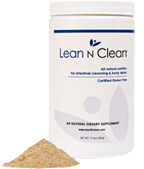Probiotics Vs Antibiotics
Probiotics Vs Antibiotics
Advancements in technology in the past several decades have enlightened the understanding of human intestinal microflora. There are trillions of living bacteria (intestinal microflora), including 100 to 400 bacterial species, in our intestinal system. In a healthy body, these microorganisms live in symbiosis. They perform important functions in our system. These include the synthesis and utilization of nutrients, resistance against infections, life expectancy, aging, the cause and/or prevention of various forms of cancer, as well as detox cleansing of pollutants and metabolism of cholesterol. When the balance between the good bacteria and the bad bacteria in this microbial population is upset, the bad bacteria prevail.
The use of antibiotics has grown tremendously over the past few decades. Antibiotics have been over prescribed by physicians and overused by livestock farmers. Throughout the 1990s physicians in the United States have written 200-250 million prescriptions for antibiotics each year. We are also exposed to the effect of antibiotics through the consumption of meat from livestock raised by animal feed mixed with antibiotics for the purpose of increased production. While the discovery and use of antibiotics have saved many lives and contributed to the longevity of people living in the twentieth century, their widespread use also has its own serious health consequences. Along with the disease-causing bacteria, antibiotics often kill over 99% of friendly bacteria and makes the intestinal environment favorable for the overgrowth of yeast and other disease-causing bacteria, leading to intestinal toxemia and decreased ability to fight future infections. Symptoms include flatulence, bloating, intestinal pain and inflammation, chronic constipation and/or diarrhea. Unfortunately, the cause of these symptoms is frequently misunderstood, misdiagnosed and mistreated symptomatically. As a result, more serious disorders, such as asthma, bronchitis, allergies and arthritis, may begin to develop. There is also suspicion that yeast infections and chronic fatigue syndrome may also be linked with frequent use of antibiotics.
Therefore it is important for an individual to re-inoculate his/her gastrointestinal tract with beneficial bacteria (probiotics) after a course of antibiotics. However, physicians and dentists seldom advise patients to take probiotics after antibiotic therapy. Optimal therapy requires daily ingestion of 10-20 million friendly organisms for two weeks. Besides counteracting the adverse effects of the bad bacteria, a healthy intestinal flora will produce several times as many B vitamins as are present in a well-balanced whole-food diet. Among these B vitamins, B-12 is essential for preventing and treating pernicious anemia. Antibiotics have also been found to deplete Vitamin K store in our body.
Lactobacillus acidophilus and Bifidobacteria bifidum (bifidus) are some of the friendly, beneficial bacteria in our intestinal tract. Yogurt or acidophilus milk contains live culture of acidophilus. However, the concentration of acidophilus in these products is not adequate to re-colonize the gastrointestinal tract after antibiotic therapy. They are also too high in lactic acid. When excessive lactic acid is ingested, it will be absorbed into the blood stream causing muscular weakness and pain. In addition, the animal protein in these products can further aggravate the symptoms of an upset gastrointestinal tract.
There are probiotics products with various quality and potency. The better-quality probiotics contain from 1 billion to 5 billion CFU (colony forming units) per dose. Many of these products have to be refrigerated since they contain live organisms. Recent technology has enabled the production of freeze-dried probiotics that do not need refrigeration until opened. Be sure to check the expiration date on these products.
Maintaining a healthy intestinal colony of microflora is imperative to good health and longevity.

Products
Lean N Clean®
Digestive Issues
- Diverticulitis
- Crohn’s Disease
- Celiac Disease
- Irritable Bowel Syndrome (IBS)
- Constipation
- Hemorrhoids
- Acne Cure and Prevention
- Bad Breath Cure and Prevention
- How to Regulate Your Bowel
Cleansing Benefits
Digestive Health
- Visit www.acidgone.com to learn about our Acid Reflux/GERD/heartburn- product- Acidgone®
- Read About How You Can Avoid Being a Willing Medical Victim on willingmedicalvictims.org
- Are you an independent thinker? Share your important thoughts to benefit humanity on debateandshare.com

